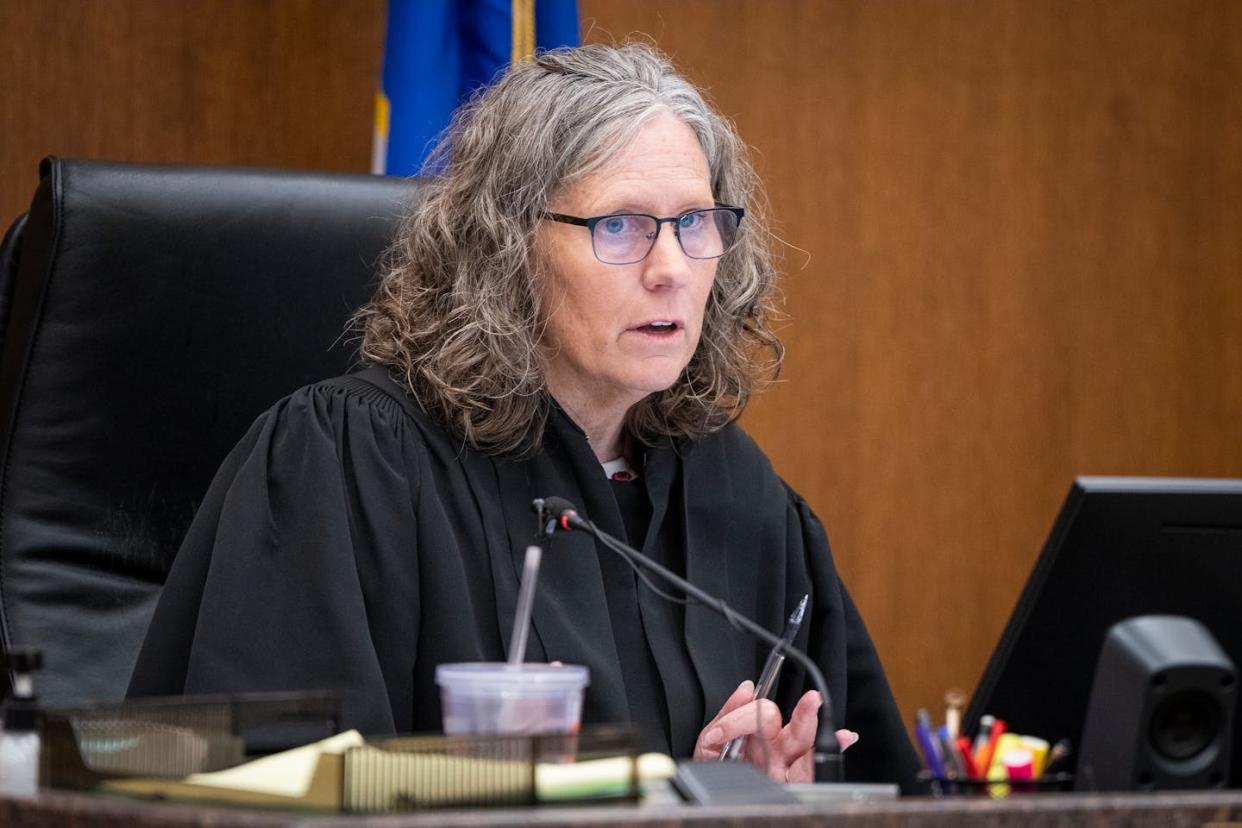Chief Hennepin judge reverses her decision to give accused domestic abusers quick access to bail

Hennepin County's chief District Court judge recently reversed her decision to give some people accused of misdemeanor domestic abuse quicker access to bail.
Kerry W. Meyer, chief judge of the Fourth Judicial District, made a change to the court's standing orders June 18 so people charged with certain types of misdemeanor domestic abuse offenses would no longer be held without bail until their first court appearance.
That decision surprised law enforcement and victim advocates who worried about the impact on domestic violence victims and pushed to have the order changed. Meyer rescinded the June order July 13 after it was in place for less than a month.
Her reversal returned court practices essentially to what was in place since 2019 — most people charged with domestic abuse are held until a judge sets their bail.
It is unclear why Meyer made the initial change, but another updated order is expected from the court as soon as next week. A court spokesman said court orders speak for themselves and there would be no additional comment.
Hennepin County Sheriff Dawanna Witt said in a statement she immediately reached out to Judge Meyer after the June 18 change "with a detailed list of concerns, number one being the potential impacts on victims of domestic violence."
Witt and Tim Hoyt, president of the Hennepin Chiefs of Police Association, then met with Meyer and Judge Hilary Lindell Caligiuri, who oversees the criminal division.
"They were receptive and quickly rescinded the order," Witt's statement said. "This is a strong example of the importance of conversation and collaboration, with the ultimate goal being public safety."
When default standing orders are changed it is typically done by a judge that oversees a specific type of case, and the decision can be workshopped between a group of judges and in consultation with outside entities like a city or county attorney's office, public defenders and public safety groups. Private and public pushback to a standing order change is something a judge would take under consideration.
Why this order was changed remains unclear, but there are a variety of opinions about the role of bail in domestic abuse cases.
Advocates for victims of domestic abuse say one of the most important things police can do is to keep them notified about whether their alleged abuser was released from jail.
Elsa Swenson, program manager for the Home Free Community Program with Missions Inc., said the availability of victim advocates varies across Hennepin County depending on the city and the resources available.
The June 18 court change meant instead of being held for a day or more, some accused offenders were released from jail within a few hours of being arrested, which doesn't give victims enough time to seek a protection order or move someplace safe, she said.
"The one time when we know where this person is going to be is really important safety time," Swenson said.
However, advocates also acknowledge bail can have a negative impact on victims who often are the ones paying to get their alleged abusers out of jail.
Jess Palyan, policy program manager for Violence Free Minnesota, said there are often conflicting power dynamics involved in domestic abuse cases. Often, victims are reliant on their abusers for income, childcare and housing.
It's important to "understand the different ways the system can make people more vulnerable," Palyan said and to "keep evaluating it to make sure we get the best version."
Star Tribune staff writer Jeff Day contributed to this story.
If you or someone you know needs help in a relationship, please call the 24/7 Minnesota Day One Hotline at 1-1-866-223-1111 or text the hotline at 612-399-9995.

